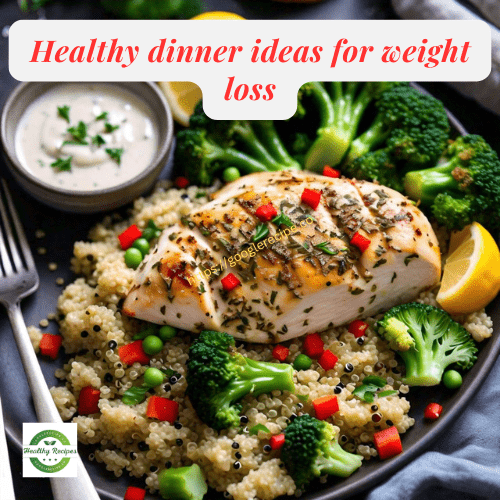Banana Calorie
Banana Calorie: How Many Calories Are in a Banana?
Bananas are a favorite fruit, loved for their versatility and health benefits. They’re great as a quick snack, in desserts, or blended into smoothies. It’s natural to wonder about their calorie count. This article will cover the calories in bananas, their nutritional value, and how they fit into a healthy diet.
Bananas are seen as a healthy snack choice. But, their calorie count changes with the fruit’s variety and ripeness. Knowing the calories in bananas helps you make better diet choices. This is important whether you’re trying to keep, gain, or lose weight.
Key Takeaways
- Bananas are a nutrient-rich fruit with a relatively low calorie count, typically ranging from 105 to 135 calories per medium-sized banana.
- The calorie content of bananas can be influenced by factors such as variety and ripeness, with riper bananas generally having a higher calorie count.
- Bananas are a good source of dietary fiber, potassium, and other essential vitamins and minerals, making them a healthy addition to a balanced diet.
- Incorporating bananas into your diet can provide a range of health benefits, from supporting digestive health to promoting heart health and blood sugar regulation.
- Moderation is key when it comes to banana consumption, as with any food, as the calorie and carbohydrate content can add up quickly if not managed appropriately.
Understanding Calorie Counts in Bananas
Bananas are a favorite fruit for many. They are great for a balanced diet. But, have you thought about how many calories they have? Knowing the calories in bananas helps you choose them wisely for your daily meals.
A medium banana, about 7 to 8 inches long, has around 105 calories. The calories can change based on the banana’s size, ripeness, and type. Bigger bananas might have more calories, and smaller ones might have less.
To understand banana calories better, look at this info:
- Small banana (about 6 inches long): 90 calories
- Medium banana (about 7-8 inches long): 105 calories
- Large banana (about 8-9 inches long): 120 calories
The banana nutritional value is more than just calories. They are full of important nutrients like potassium, vitamin C, fiber, and more. This makes bananas a great choice for any diet.
| Nutrient | Amount per Medium Banana |
|---|---|
| Calories | 105 |
| Total Carbohydrates | 27 g |
| Dietary Fiber | 3 g |
| Potassium | 422 mg |
| Vitamin C | 9 mg |
Knowing the banana calorie and nutritional facts helps you make smart choices. Whether you’re having a banana as a snack, in a smoothie, or in a recipe, this info can help you meet your health goals.
Factors Affecting Calorie Content in Bananas
The calorie count in bananas can change based on the type and ripeness. While the banana calorie count doesn’t change much, knowing these factors helps you choose better bananas.
Variety and Ripeness
Various banana types have slightly different banana calorie and banana carbohydrates levels. Bigger, riper bananas usually have more calories than smaller, greener ones. This is because ripening bananas turn starch into banana fiber and sugars, making them more calorie-dense.
Serving Size
The size of a banana affects how many banana calories you eat. A medium banana has about 105 calories, but a big one can have up to 135 calories. Choosing the right size can help you control your banana calorie intake for a balanced diet.
Knowing these factors lets you pick the best bananas for your meals and snacks. This way, you get the right amount of banana calorie, banana carbohydrates, and banana fiber for your health and wellness goals.
Comparing Banana Calories to Other Fruits
When we talk about banana calorie content, it’s good to compare it with other fruits. Bananas are seen as a bit more calorie-rich. Yet, when we dive into the banana nutritional value, they can be a great choice for a balanced diet.
A medium apple has about 95 calories, and an orange has around 62 calories. But a medium banana has about 105 calories. Still, bananas bring a lot to the table with their banana carbohydrates, fiber, and important vitamins and minerals.
Here are some comparisons to help you pick the right fruits:
- Apples: 95 calories per medium fruit
- Oranges: 62 calories per medium fruit
- Bananas: 105 calories per medium fruit
- Grapes: 62 calories per 1 cup of grapes
- Strawberries: 53 calories per 1 cup of strawberries
Looking at calories is key, but don’t forget to consider the nutritional value of fruits. This helps you make choices that are good for your health and wellness goals.
Health Benefits of Bananas Beyond Calories
Bananas are more than just a source of calories. They are full of essential nutrients and fiber, offering many health benefits. These fruits are a great banana nutritional value and banana fiber content source.
Nutrient-Rich and Fiber-Packed
Bananas have important vitamins and minerals like:
- Vitamin C
- Vitamin B6
- Potassium
- Magnesium
They are also high in dietary fiber. This helps with healthy digestion and makes you feel full. A medium banana has about 3 grams of fiber, perfect for boosting fiber intake.
“Bananas are not only a convenient snack, but they also offer a range of beneficial nutrients that can support overall health.”
Bananas have vitamins, minerals, and fiber. That’s why they’re a fantastic complement to a diet that’s balanced. Adding bananas to your diet is easy and tasty. It’s a simple way to get more nutrients and support your digestive health.
Banana Calorie: A Closer Look
Looking into the banana calorie content shows us how nutritious this fruit is. There are around 27 grams of carbs in a medium banana. These carbs are mainly sugars like glucose, fructose, and sucrose.
Bananas also have important nutrients besides carbs. They have a lot of dietary fiber, which helps with digestion and makes you feel full. Plus, they’re packed with potassium. This mineral is key for keeping your blood pressure right and your muscles and nerves working well.
| Nutrient | Amount in a Medium Banana (about 118g) |
|---|---|
| Calories | 105 |
| Carbohydrates | 27g |
| Fiber | 3g |
| Potassium | 422mg |
| Vitamin C | 12mg |
The banana calorie count is low compared to other fruits. But, it’s key to look at the whole nutritional picture. Knowing the banana nutritional value helps you make better food choices. This way, you can enjoy bananas and their health perks.
Incorporating Bananas into a Balanced Diet
Bananas are great for a balanced diet. They make a nutritious snack or can be used in many recipes. They’re perfect for a quick snack or to add more banana calorie, banana nutritional value, and banana fiber content to your meals.
Healthy Snack Options
Enjoy bananas as a healthy snack alone or with other foods. Try them with nut butter or Greek yogurt for a snack full of protein.
Banana-Based Recipes
Bananas fit into many recipes, like smoothies, oatmeal, baked goods, and desserts. They add sweetness, fiber content, and a creamy texture. This makes them useful in both savory and sweet dishes.
| Banana-Based Dish | Nutritional Benefits |
|---|---|
| Banana Smoothie | High in banana calorie, banana nutritional value, and banana fiber content. It’s a nutritious and refreshing snack or meal. |
| Banana Bread | It’s a tasty way to add banana calorie and banana fiber content to your baking. It’s a satisfying treat. |
| Banana-Oat Breakfast Bowl | This dish combines the banana nutritional value and banana fiber content with oats’ energy. It makes a wholesome and filling breakfast. |
Adding bananas to your diet brings many health benefits. It satisfies your taste buds and gives you essential nutrients.
Misconceptions About Banana Calories
Many people think bananas are high in calories and can make you fat. But this idea is not true. Bananas are actually a great snack for those watching their calorie intake.
Bananas get their calories mainly from carbohydrates, not fat. A medium banana has about 105 calories and less than 1 gram of fat. This makes bananas a low-calorie snack compared to other foods.
Some believe bananas cause blood sugar spikes because of their glycemic index. But bananas have a moderate glycemic index. Their fiber content slows down the release of sugars into your bloodstream. This prevents big changes in blood sugar levels.
- Bananas are not “fattening” due to their calorie content, which is primarily from carbohydrates, not fat.
- Bananas have a moderate glycemic index, and their fiber content helps to slow the absorption of their natural sugars.
Knowing the truth about bananas can help you make better snack choices. This fruit is a fantastic complement to a balanced diet.
Banana Calorie and Weight Management
Bananas can help with weight management by offering nutrients and fiber. They make you feel full and satisfied. But, it’s important to watch how much you eat and know the calories. For fewer calories, try banana-flavored snacks like chips or protein bars that taste similar but have fewer calories.
Low-Calorie Alternatives
Looking for ways to cut down on banana calories? Try low-calorie options. Banana chips are a tasty, crunchy choice with fewer calories than a fresh banana. Also, banana-based protein bars are a convenient snack with fewer calories than a whole banana. These options let you enjoy bananas without going over your calorie limit.
Think about the banana’s nutritional value and glycemic index when managing your weight. Bananas are a healthy fruit but have calories and carbs that add up. By choosing smaller portions and low-calorie snacks, you can still enjoy bananas and meet your weight goals.
FAQ about Banana Calorie
How many calories are in a banana?
A medium-sized banana usually has about 105 calories.
What factors affect the calorie content of bananas?
The calories in bananas can change based on the type, ripeness, and size. Bigger and riper bananas tend to have more calories.
How do banana calories compare to other fruits?
Bananas are a bit calorie-dense, but not as much as some other fruits. For instance, a medium apple has about 95 calories, and a medium orange has around 62 calories.
What are the health benefits of bananas beyond their calorie content?
Bananas offer more than just calories. They’re full of important nutrients and fiber. They give you vitamins, minerals, and antioxidants like vitamin C, B6, potassium, and magnesium. Plus, they’re a great source of dietary fiber, which helps with digestion and makes you feel full.
What is the nutrient breakdown of banana calories?
Most of a banana is made up of carbohydrates. A medium banana has about 27 grams of them. These carbs are mainly sugars like glucose, fructose, and sucrose.
In what way might bananas be included in a diet that is balanced?
Bananas are a great addition to a balanced diet. They make a nutritious snack or can be used in many recipes. Enjoy them alone or with things like nut butter or Greek yogurt. They also work well in smoothies, oatmeal, baked goods, and desserts.
Are there any misconceptions about banana calories?
Yes, there are some wrong ideas about banana calories. Some think bananas are too fattening because of their calories. But, most of these calories come from carbs, not fat. Also, some worry that bananas cause blood sugar spikes because of their glycemic index. But, their fiber can slow down the sugar absorption.
How can bananas fit into a weight management plan?
Bananas can help with weight management by offering nutrients and fiber that make you feel full. Just watch the portion sizes and be aware of the calories. For fewer calories, try banana-flavored alternatives like banana chips or protein bars that still taste good.


